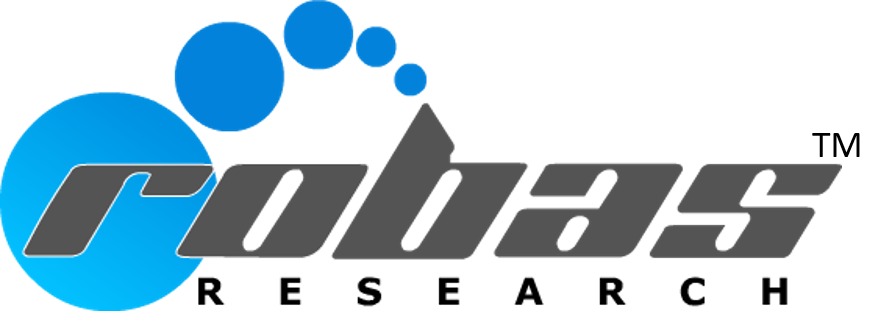
Generative-AI: Best Use Cases You Must Know In Healthcare
Introduction
In recent years, the healthcare, pharmaceutical, and MedTech industries have witnessed a groundbreaking transformation, thanks to Generative AI. This cutting-edge technology, driven by advanced models like ChatGPT3 and ChatGPT4, is revolutionizing patient care, boosting efficiency, and paving the way for a healthier future. In this blog, we will explore the significant strides made by Generative AI in these sectors, from its current applications to its potential future use cases. Let’s dive into the world of Generative AI and its game-changing impact on healthcare.
Market Size of Generative AI in the Healthcare Industry
The healthcare industry is experiencing a seismic shift towards digitalization, and Generative AI is at the forefront of this transformation. As per Statista, the global AI in the healthcare market was worth around $11 billion in 2021 and is projected to grow significantly reaching nearly $188 billion by 2030 with a CAGR of 37% from 2022 to 2030. Approximately 20% of healthcare organizations were in the early stage of adopting AI models in 2021, with models in production for less than two years.
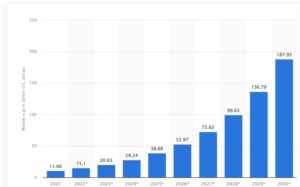
Figure 1: AI in Healthcare Market – Statista Analysis Between 2021 -2030
Drivers of AI usage in Healthcare:
- The enormous increase of structured and unstructured data of patients across various systems – EHR, app, vendors systems, and images, chats, voices, and videos made it extremely difficult to derive the RIGHT patient insights in remarkably less time enabling providers and doctors to take right decision and diagnosis of disease much faster.
- The availability of big data, and other health technology to improve efficiency, productivity, the quality of patient care, and time-saving capabilities.
- Continuous demand for reducing healthcare costs while improving productivity, and efficiency with quality patient care
- New product launches offer lucrative opportunities for market players to use AI
- Increasing the government’s investment in the healthcare technology sector
Key Insights of the AI Healthcare Market:
- The most common types of AI software in healthcare were related to healthcare data integration and natural language processing (NLP).
- Clinicians and providers were the primary intended users of AI among organizations in the mature stage of adoption.
- Around 60% of organizations believed that patients should also have access to AI technologies.
- Implementation of AI in healthcare is expected to free up approximately 20% more of physicians’ time for patient care by reducing administrative tasks.
- Nurses are projected to gain approximately 8% more time with patients due to reduced administrative and regulatory burdens.
Use Cases of Generative AI in Healthcare
Generative AI’s applications span various sectors within healthcare, including providers, payers, pharmaceutical firms, public health agencies, MedTech, services, and operations. Here are some notable examples:

Figure 2: Patient’s Medical image analysis, Automated Medical Records Summarization, and Personalized Treatment Plans.
Provider Industry: Generative AI enhances diagnosis and treatment planning through data-driven insights, aiding healthcare professionals in making more informed decisions. Early stage use cases include medical image analysis, automated medical records summarization, and personalized treatment plans.
Payer Industry: In the payer sector, Generative AI streamlines claims processing, fraud detection, and risk assessment. It contributes to more efficient administrative operations and helps control costs while ensuring quality healthcare services.
Pharma Industry: Generative AI plays a pivotal role in drug discovery, accelerating the identification of potential drug candidates and predicting their effectiveness. It also aids in optimizing clinical trial designs and patient recruitment.
MedTech: In MedTech, Generative AI is used for designing and testing medical devices, enhancing their safety and efficacy. It supports the development of innovative solutions for patient monitoring, prosthetics, and telemedicine.
Services and Operations: Generative AI improves patient engagement through chatbots and virtual assistants, making healthcare services more accessible and user-friendly. It also optimizes hospital operations by forecasting patient admissions, managing resources, and scheduling appointments efficiently.
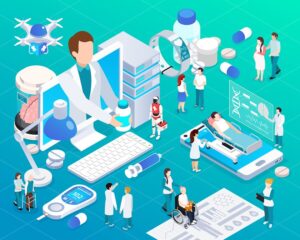
Figure 3 – Integrating Patient health Record from multiple disparate systems in ONE place and creating rich patient insights for uber decision making
Ro-Bas research PVT Ltd is equipped with various market research studies in healthcare from online to offline. Contact Us for your research quesries.
Immediate Use Cases of Generative AI in Healthcare
Immediate use cases of Generative AI in healthcare are those that have been rigorously validated and tested, showcasing their tangible benefits. These applications are already making a significant impact in the industry.
Medical Image Analysis: Generative AI, particularly deep learning models like Convolutional Neural Networks (CNNs), has been extensively used for medical image analysis. For instance, AI-powered tools can accurately identify and analyze anomalies in X-rays, CT scans, and MRIs. This technology aids radiologists in detecting diseases such as cancer, fractures, or neurological disorders with greater accuracy and speed.
Example: Aidoc is an AI platform that assists radiologists in identifying abnormalities in medical images, thereby expediting diagnosis and treatment.
Drug Discovery: Pharmaceutical companies are leveraging Generative AI to accelerate drug discovery processes. AI models can predict molecular structures and drug interactions, significantly reducing the time and resources required for developing new medications.
Example: Atomwise employs Generative AI for virtual drug screening, rapidly identifying potential drug candidates for various diseases.
AI Chatbot: AI chatbots in healthcare provide instant responses to patient inquiries, assisting with appointment scheduling, medication reminders, and general health-related queries, improving patient engagement and freeing up staff time.
AI Voice Bot: AI voice bots offer voice-activated assistance for patients, aiding in hands-free interactions for individuals with disabilities and enabling intuitive control of healthcare devices, enhancing accessibility and patient independence.
Electronic Health Record (EHR) Summarization: Generative AI can parse extensive patient records and generate concise summaries for healthcare providers. This enhances clinical decision-making and saves time.
Example: Notable Health uses AI to extract crucial information from patient records and present it to physicians in a structured format.
Early Stage Use Cases
Early stage use cases represent innovative applications that are still in the experimental or early adoption phase but show great promise.
Personalized Treatment Plans: Generative AI is being explored to create personalized treatment plans based on an individual’s genetic makeup, medical history, and lifestyle. These plans can optimize medication choices and dosages.
Predictive Analytics: Early-stage AI models are being developed to predict disease outbreaks and patient health deterioration. By analyzing vast datasets, healthcare providers can proactively manage public health crises and improve patient outcomes.
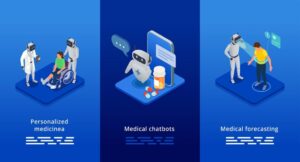
Figure 4 – Immediate Use Cases of Generative AI in Healthcare
Future Use Cases
Future use cases are the horizon of Generative AI in healthcare, promising even more transformative possibilities.
Early Disease Detection: Generative AI models may soon detect diseases in their early stages by analyzing subtle biomarkers and patient data. This early detection can lead to more effective treatment and improved prognosis.
Real-time Monitoring and Intervention: AI-driven wearable devices and sensors could continuously monitor vital signs and health metrics. In the event of anomalies, these systems can alert healthcare providers for immediate intervention.
Drug Customization: Future AI applications may enable the customization of medications on a patient-by-patient basis, considering individual genetics, allergies, and responses to treatments.
Virtual Health Assistants: Advanced Generative AI chatbots and virtual assistants will provide real-time health advice, medication reminders, and emotional support to patients, improving user engagement.
Incorporating these emerging technologies into your healthcare practice can position your organization at the forefront of innovation. By embracing Generative AI and staying informed about the latest developments, you can provide cutting-edge care, optimize operations, and offer your patients a higher quality of service.
As Generative AI continues to mature and expand its reach in healthcare, it will become increasingly vital for organizations in the sector to leverage its capabilities to enhance patient care, drive operational efficiencies, and contribute to the ongoing evolution of the industry.
Potential Risks of Generative AI in Healthcare and Mitigation Strategies
While Generative AI offers transformative benefits, it also comes with inherent risks. Privacy concerns, data security, biased algorithms, and misinterpretation of results are among the potential pitfalls. To tackle these challenges, rigorous validation of products, robust risk management protocols, and continuous monitoring are imperative. Ethical considerations should guide the development and deployment of Generative AI applications to ensure equitable and safe healthcare delivery.
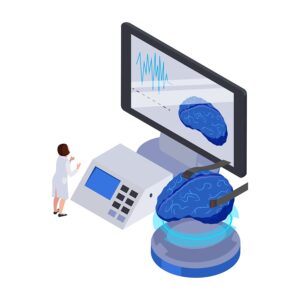
Figure 5 – Potential Risks of Generative AI in Healthcare and Mitigation Strategies
Getting Started with Generative AI in Healthcare
To embark on the Generative AI journey in healthcare, organizations should:
- Identify specific use cases aligned with their goals.
- Invest in data infrastructure and quality to support AI models.
- Collaborate with AI experts and data scientists.
- Continuously monitor and adapt to emerging technologies and regulations.
2025 and Beyond – Generative AI’s Future in Healthcare
The potential of Generative AI in healthcare is limitless. In the coming years, we can expect to see advancements in early disease detection, more personalized treatment plans, predictive healthcare analytics, and improved patient engagement. The evolution of Generative AI algorithms will lead to even more validated products, fostering trust in their application across the industry.
Key Takeaways
Generative AI is reshaping the healthcare, pharmaceutical, and MedTech industries, enhancing patient care and operational efficiency. Use cases span provider, payer, pharma, and MedTech sectors, with applications in services and operations. Mitigating potential risks and ethical considerations are crucial in deploying Generative AI in healthcare. Getting started requires careful planning, data readiness, and expert collaboration. The future holds promising advancements in healthcare powered by Generative AI.
Generative AI is a transformative force in healthcare, enabling data-driven decision-making, optimizing operations, and ultimately improving patient outcomes. The path ahead is filled with innovation, and embracing Generative AI is key to staying at the forefront of this healthcare revolution.
Ro-Bas Research Pvt Ltd, one of the top research organizations in the world, is dynamic and experienced market research firm in conducting various market research projects, such as Online/Offline Primary research, Secondary research, Data collection, Healthcare research, Survey Programming & Hosting and more. Contact Us for your research queries.
